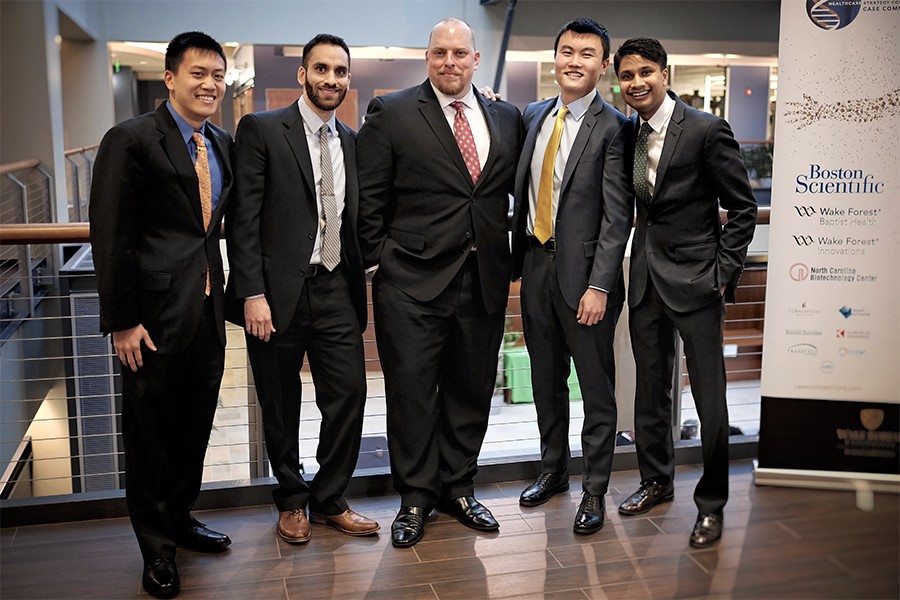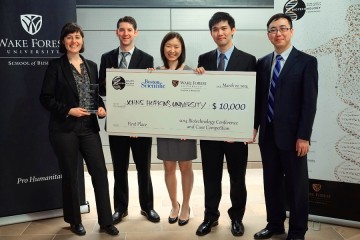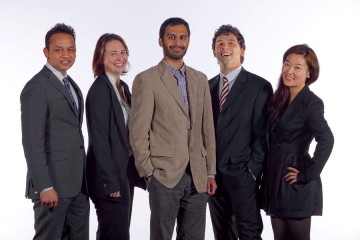A five-member team of Johns Hopkins students took home first place and $10,000 in the sixth annual Wake Forest University Healthcare Strategy Conference and Case Competition, the third consecutive first-place finish for JHU students in the competition.
The Johns Hopkins team consisted of Christopher "Kitt" Burch, a 2015 graduate of the Global MBA program at the Carey Business School; Basil Hussain, a PhD student in the Department of Molecular Biology and Genetics at the Johns Hopkins School of Medicine; Steven Wang, a PhD student studying cellular and molecular medicine at the School of Medicine; Christopher Bailey, a fourth-year medical student; and Tim Xu, a third-year medical student.
Boston University, Cornell, University of Maryland, MIT, North Carolina State, Rutgers, University of Texas at Dallas, Tufts, and Wake Forest also participated in the competition, which was held in March.
Teams were challenged to develop a growth plan for a minor division of Boston Scientific, a medical devices and solutions provider best known for its work in the field of interventional cardiology. The plan needed to show how to grow the smaller division to the size and scope of the highest earning divisions within the company's portfolio. Each team completed an executive summary and was then given 20 minutes to orally present their plan to a panel of judges consisting of Boston Scientific executives.
Burch said the strength of the Hopkins team was its multidisciplinary approach.
"One of the biggest things I learned at Carey was how to work in multidisciplinary teams, and that really came in handy," he said.
He said the team's diverse makeup and expertise allowed them to put together a comprehensive and multi-pronged solution, which focused on both short- and long-term goals for the division.
"The other teams were either primarily all MBA students or all engineering students," he said. "I think our strength was that everyone on our team approached the problem a slightly different way, and that helped us develop different strategies and approaches."
According to Burch, their pitch centered on leveraging Boston Scientific's networks and contacts to springboard a new technology they've been developing. Specifically, the team focused on the Chinese market and provided a detailed market analysis that included specific cities and hospitals to target for implementation.
Posted in Science+Technology, Student Life
Tagged biotechnology










